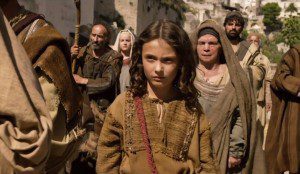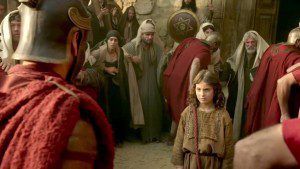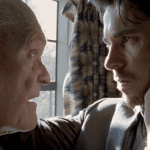
When do we become ourselves? When do we realize who we are?
For most of us, the process of becoming us is a gradual one—one so slow and easy that we don’t even notice it. Oh sure, we’re here, in the world, the moment we’re conceived. We have parents and some sort of place in the world the second we’re born. But who are we, really? Do we already love bacon and hate peas even when we’ve tasted neither? Are we already pre-programmed to like jazz music or cheesy sitcoms? We don’t have a clue as to who we are when we’re first born. We just … are. Most of us don’t even remember the first several years of our lives, even though that’s when our lives were at their most formative. And even after that, it takes us a while to grasp the greater narrative beyond our own momentary wants and needs.
“Children … wake up and find themselves here, discover themselves to have been here along,” essayist Annie Dillard writes in An American Childhood. “They know the neighborhood, they can read and write English, they are old hands at the commonplace mysteries, and yet they feel themselves to have just stepped off the boat, just converged with their bodies, just flown down from a trance, to lodge in an eerily familiar life already well underway.”
It’s a profound unveiling, this process of waking up. The experience is as universal as anything can be in this life. But I never considered that it might’ve happened to Jesus, too.
The Young Messiah, based on Anne Rice’s novel Christ the Lord: Out of Egypt, changed all that. The film, out this weekend, is a competent, likely controversial suggestion that Jesus, too, might’ve “woken up,” coming to understand His true nature by degrees.
A Strange New World

Jesus (Adam Greaves-Neal) is 7 years old when the movie opens—several years before the Bible says he wowed a bunch of rabbis with his knowledge. He and his family are still living in Egypt at the moment and, in many respects, Jesus is a pretty average kid. He plays with toys. He tries to get along (not always successfully) with his older step-brother. He even gets bullied.
But not every 7-year-old has the ability to seemingly kill, then resurrect, the bully.
Jesus didn’t actually kill the bully, of course. The older child hit his head on a rock, but that didn’t stop some townsfolk from blaming the dreamy kid from Nazareth. And when Jesus tries to make things better by raising the kid from the dead (an ability Jesus only recently discovered and seems nearly as amazed by it as everyone else), he’s accused of being an agent of the devil.
Thankfully, Jesus’ parents, Mary and Joseph, were about ready to leave town anyway. King Herod recently kicked the bucket, which means that it’s safe for them to head back to Nazareth.
Or so they believe.

Alas, Judea is not out of Herods. As Jesus et al make their way into Palestine, the old King’s son, Herod Archelaus, begins to hear rumors of a remarkable little boy. The new Herod knows that his dad killed pretty much every male toddler in Bethlehem several years ago in an effort to rid the world of a prophesied “king,” and he suspects this rumored child may be one who got away. And so Herod sends a soldier named Severus (Sean Bean) to finish his father’s work.
This isn’t the first time we’ve seen a dutiful centurion try to track down Jesus this spring. Risen gave us Clavius (Joseph Fiennes), a turn-of-the-millennia inspector tasked with tracking down an adult Jesus’ mysteriously missing body.
But while Clavius is a world-weary ladder-climber, Severus—who participated in the original Bethlehem slaughter of innocents—is deeply scarred. He does not want to kill yet another child, even as he relentlessly hunts for him. And when they finally meet, it makes for a memorable moment.
Imaginative Fiction
The Young Messiah is a competent, sometimes beautiful movie that will surely be, for some Christians, controversial. This is a purely fictional story that takes place outside the biblical record, and for some Christians, that itself may be a non-starter. Plus, there’s something that just feels weird about Jesus not knowing who He truly is. He is, after all, wholly God, and God should know who He is, right?
But we’re also taught that Jesus was wholly human, too. And to be an omniscient 7-year-old would seem rather odd, too. Even the Bible itself tells us that “Jesus grew in wisdom and stature (Luke 2:52),” which suggests that He was learning.
That, in itself, is a remarkable thought for me—someone who’d not given much time to such things: Jesus learning.

Director Cyrus Nowrasteh came at this project with a great deal of reverence springing from his own Christian faith. “I seek to present a realistic fictional portrait of Jesus inspired by Scripture and rooted in history,” he wrote for Fox News. “We imagine one year in the boyhood of Jesus. Most important to us was that we present a child who is consistent with the character of Jesus as revealed in the Bible.”
Nowrasteh seems to be aware of the controversy his movie may court and seeks to stave it off. He reminds readers that The Passion of the Christ, Mel Gibson’s bloody and much-revered depiction of Jesus’ last mortal hours and crucifixion, wasn’t technically based on the Bible, but a book written by a German nun. The Satan figure in the movie, complete with creepy baby, certainly wasn’t scripturally accurate. And yet it was deeply resonant for many who saw it.
“That’s what artists often do—we fill in the lines and add color and context-and film is a great canvas, trying to imagine moments that we can’t know, yet doing our best to ensure they are consistent with the character and nature of our subjects,” Nowrasteh writes.
The moments in The Young Messiah are moments that, of course, we can’t know. But This movie got me thinking about the nature of Jesus in a way that I’d not thought about before. And whenever you can say that a movie “got me thinking,” that’s a good thing. Movies, after all, should do more than give us a couple of hours of escape. At their best, they should engage our brain—whether we agree with them or not. They should wake us up.













